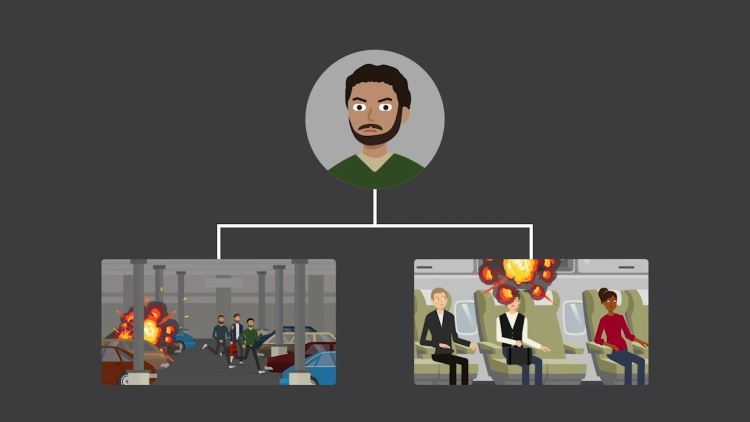United States v. Yousef
United States Court of Appeals for the Second Circuit
327 F.3d 56 (2003)
- Written by Megan Petersen, JD
Facts
Ramzi Yousef, Eyad Ismoil, and Abdul Hakim Murad (defendants) were charged by the United States government (plaintiff) in federal district court with conspiracy to bomb twelve United States commercial airliners in Southeast Asia. Yousef entered Manila, Philippines in 1994 and devised a plan for the attack which involved five individuals placing bombs aboard the aircraft, and then exiting the planes at their first layover. All planes were bound for United States cities. Yousef and other individuals tested the plan on two occasions by placing smaller bombs in other aircraft. The plan was discovered when Yousef, together with Ismoil and Murad, was burning chemicals in his Manila apartment and accidentally started a fire. Manila police arrived at the scene and found components for making a bomb, as well as plans to carry out the airliner attacks on Yousef’s computer. The three individuals were arrested and charged with twenty counts of conspiracy. All defendants were found guilty on all counts. The district court denied several of the defendants’ pre-trial motions, including arguments that counts twelve through nineteen should be dismissed because the U.S. government exceeded its authority in finding the defendants criminally liable for conduct occurring outside the United States. Count twelve charged the defendants with violating 18 U.S.C. § 371 by conspiring to place bombs on board aircraft and destroy aircraft in violation of 18 U.S.C. § 33(a)(1) and (2). The district court held that because it had jurisdiction over the underlying offenses (placing bombs on aircraft and destroying aircraft), it also had jurisdiction over the conspiracy charges. In count nineteen, Yousef alone was charged with violating 18 U.S.C. § 32(b)(3) by placing a bomb on a civil aircraft registered in another country (an aircraft bound from the Philippines to Japan). The district court held that it had jurisdiction over this charge because Yousef’s conduct constituted “terrorism” and thus was appropriate under the customary international law principle of “universal jurisdiction.” After being convicted of these and all other counts, Yousef and Ismoil appealed. On appeal, Yousef challenges the district court’s jurisdiction over counts twelve through nineteen by arguing that customary international law does not provide a basis for jurisdiction over these counts and that United States law is subordinate to customary international law and thus cannot provide a basis for jurisdiction.
Rule of Law
Issue
Holding and Reasoning (Walker, C.J.)
What to do next…
Here's why 907,000 law students have relied on our case briefs:
- Written by law professors and practitioners, not other law students. 47,100 briefs, keyed to 996 casebooks. Top-notch customer support.
- The right amount of information, includes the facts, issues, rule of law, holding and reasoning, and any concurrences and dissents.
- Access in your classes, works on your mobile and tablet. Massive library of related video lessons and high quality multiple-choice questions.
- Easy to use, uniform format for every case brief. Written in plain English, not in legalese. Our briefs summarize and simplify; they don’t just repeat the court’s language.





